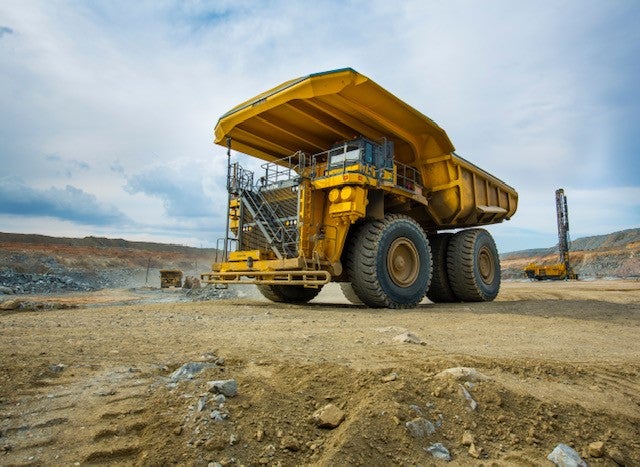
London-based company Anglo American has embarked on developing its record-breaking new Fuel Cell Electric Vehicle (FCEV) – an ultra-class electrically powered mining haul truck, which will set a new record for the largest electric vehicle in the world.
The truck, designed with assistance from Williams Advanced Engineering (WAE) weighs 290 tons, or 580,000 pounds, and is part of Anglo American’s new sustainable mining vision and its “FutureSmart Mining” project.
What does the largest electric mining vehicle have to offer?
The haul truck has a hybrid design, allowing the vehicle to be powered by a combination of a scalable high-power modular lithium-ion battery system, a supplemented fuel cells module, and regenerative braking power, extending its energy storage to over 1,000 kilowatt-hours. This power storage unit will be almost two times bigger than Kuhn Schweiz AG’s eDumper machine, current holder of the record for the world’s biggest electric vehicle.
WAE has planned to integrate the technology into an existing haul truck in Grove, Oxfordshire, UK, replacing a diesel engine with a retrofitted high-power modular lithium-ion battery which should unlock its potential, allowing it to run for longer periods of time without the need for recharging.
For this project, WAE has drawn on its experience as the sole battery supplier to the FIA Formula E global motorsport series for the first four seasons.
With test runs scheduled to take place later in 2020 at Anglo American’s Mogalakwena open pit platinum mine in South Africa, Anglo American is hoping that this record-size electric truck will improve sustainability in the industry.
The significance of regenerative energy to power the haul truck
The third type of energy that goes into the mix powering the FCEV truck, regenerative power is obtained as a result of the process of braking when the vehicle’s motor becomes a generator to convert much of the kinetic energy lost when decelerating back into stored energy in the vehicle’s battery.
During acceleration, the battery powers electric motors that make the wheels spin and creates motion; during braking, these motors change direction and turn into generators. Then, the motors use the produced kinetic energy generated by the movement and transfer it into electricity, which is stored back in the battery for subsequent acceleration.
Katie Ryall, external communications principal at Anglo American, explains that through regenerative braking, the battery system will be capable of recovering energy, especially when the haul truck travels downhill.
“By using this mix of energy, we can create a more efficient zero emission solution for mining applications. Harvesting the regenerative energy created when driving downhill, we reduce our need for external energy. The battery provides a medium in which to store that energy, and the hydrogen allows us to extend the range of the vehicle due to the limitations of battery technology today,” Ryall says.
The same kinetic process which creates additional power to be stored in the battery takes place in a number of electric vehicles and hybrids, with its importance currently on the rise as the industry prioritises sustainability.
In some cases, the same energy produced by regenerative braking can be used to boost horsepower instead of storage. For instance, Formula 1 race cars have been relying on a Kinetic Energy Recovery System, called KERS, to assist the engine and make cars faster for more than a decade .
A step towards Anglo American’s carbon ambition
The record mining truck project is part of Anglo American’s commitment to reduce global greenhouse gas emissions by 30% by 2030 and, after completion of FCEV’s test trials, the company has plans to conduct studies on how the truck’s power units can extend their function and provide energy storage in applications like producing stored energy for the power grid.
Current estimations made by the company predict that the operational performance of the converted trucks will be either the same or better than the original diesel trucks, with the converted ones certainly excelling when it comes to rate of produced emissions, noise and maintenance fees.
Ryall highlights that Anglo American is mainly focussed on boosting sustainability, but the company is also “examining all ways to maximise the value and reduce the total cost of ownership of the power units”, thus contributing to new energy storage innovations in the near future.
Anglo American’s record-size electric truck has the potential to set a sustainability precedent, encourage more innovations in the mining industry, and further contribute to decarbonisation.



